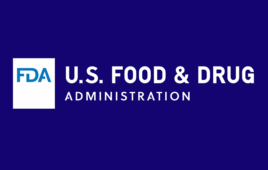 Medical app developers should have a regulatory strategy that includes a 510(k) or PMA pathway. Just not for the reasons they think.
Medical app developers should have a regulatory strategy that includes a 510(k) or PMA pathway. Just not for the reasons they think.
More and more, digital health developers are looking to ease their regulatory burden from FDA. mHealth or mobile health apps developers (particularly those without medical backgrounds) have a vested interest in swaying FDA to deregulate.
In February 2015, FDA explained how it would interpret the mobile apps regulations. The agency said that it would exempt apps that work like medical devices but otherwise do not pose a risk to patient if the app malfunctions. This is an understandable strategy from resource-constrained FDA. But developers who take the easiest path, of avoiding regulation, might end up regretting that decision. Developers who do not choose to design apps without FDA regulation in mind will likely find limited success in the marketplace.
“Physicians and patients should take apps or games that don’t have FDA [clearance] with a grain of salt,” says Tim Gee, principal of Medical Connectivity. Without FDA oversight, he says, the claims marketers make should be met with high skepticism. That’s because without such oversight, developers have little incentive to prove efficacy.
And this lack of efficacy is already starting to hurt some developers’ reputations.
In April, a report from the British Medical Journal raised questions about the validity of some apps. The journal published a report on self-diagnosing apps, concluding that many had limited capability of appropriate diagnosis. According to the report, the 23 symptom checkers in the study:
- Provided the correct diagnosis first in 34% of standardized patient evaluations;
- Listed the correct diagnosis within the top 20 diagnoses given in 58% of standardized patient evaluations;
- Provided the appropriate triage advice in 57% of standardized patient evaluations.
The fact that these apps don’t need FDA oversight has led to rather disappointing results that could negatively impact patients. Further, in the quest to avoid FDA oversight, the apps give mixed messages to users.
In another discussion in July, iMedicalApps contributor Douglas Maurer also touched on self-diagnosing apps. Maurer examined a report from Social Science & Medicine evaluating the potential social consequences of a “digitized” diagnosis on patients and the physician-patient relationship. Maurer noted some troubling trends pointed out by the authors:
Many of the apps were either not written by medical professionals at all or at least that was only one of many tangentially related apps they authored. Some app’s authors also wrote apps on children’s books and ancient Rome. Frequently, there were no specifics given about the expertise of the “team of doctors” who authored the app. No references were included for the content listed in many of the apps. Furthermore, the titles, symbols, colors, etc. all gave the apps an air of authority. However, this was contradicted by the disclaimers most used stating that their apps were for entertainment purposes only or were not meant to diagnose or treat any medical condition. Obviously, some of this is for legal protection as well as to avoid FDA regulation. But it likely will give some patients a mixed message.
Maurer’s point is further food for thought when you consider that most health apps include some level of “gamification.” Reputable apps might use the same tools as a less-well researched app.
Consider a story from National Public Radio a few weeks ago that focused on so-called brain games. These games appeal to older adults, in particular, who fear memory loss. These apps claim that the games can help in training your brain to improve function.
Except, actually, they don’t. The marketers are extremely careful to avoid making medical claims. One, for example, says its brain training app “targets all six major areas of the brain: Memory, Speed of Thinking, Concentration, Problem Solving, Language, and Visual-Spacial.”
But the brain game industry has already come under fire for misrepresenting the promises of improved mental performance and staving off memory decline. Psychology professor Randall Engle from the Georgia Institute of Technology criticized the studies done by the companies, noting that they are often very small or lack control groups, indicating a lack of good study design, and questionable results.
So here is the crux. App developers are looking to avoid FDA regulations, but they might be doing themselves a disservice. What FDA brings is peace of mind for users, the ability to have a clear marketing strategy, and an effective product line. Its not so much the FDA stamp, but the research that FDA requires, including establishing proof of safety and efficacy, that apps developers should work to achieve.
Gee puts it this way:
“At the end of the day, no one cares so much about the regulation, but they do care about clinical proof. They care about validated efficacy.”



